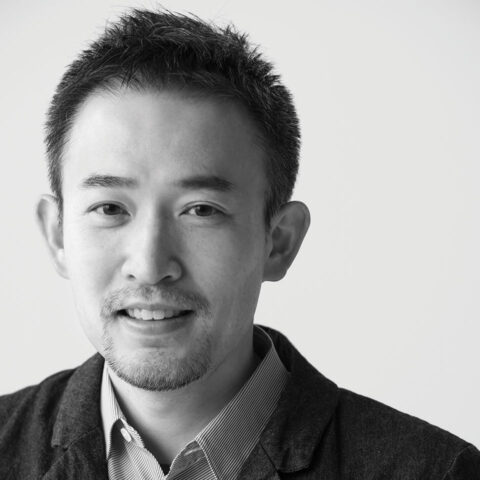Jenny Erpenbeck grew up in East Berlin and lived in a Soviet-era concrete high-rise on a street that dead-ended at The Wall. In “Literary Role Models,” an essay in Not A Novel: A Memoir in Pieces, she names some of the books and authors who charmed her in her youth — Ovid’s myths, Grimm’s tales, Maupassant, Kafka, Djuna Barnes, Thomas Mann — and then, a surprising revelation — Edgar Lee Masters’ Spoon River Anthology. She loved his terse descriptions of drunks, old maids and lunatics, and writes, “This taciturnity — the few words actually spoken while so much remains unsaid — may be what ultimately inspired me to use language above all to give shape to the gaps between the words, those mute spaces, to give shape to the silences between the words. The pauses are part of the text, they may be the finest part, as I realized at some point, more by feeling than by understanding.”
 Many of the finest parts of Not A Novel circle and probe “the impossibilities that compel you to write.” In her acceptance speech for the Solothurn Literature Prize, she remarks that the vitality in a literary work is “not just a matter of what interests you, it’s also a matter of what sort of space takes shape beyond the part that you tell. It’s a question of what need not, or cannot, be said … The untold side of a story can weigh even heavier in the reader’s mind than its twin, the hollow form of a story that is actually told.”
Many of the finest parts of Not A Novel circle and probe “the impossibilities that compel you to write.” In her acceptance speech for the Solothurn Literature Prize, she remarks that the vitality in a literary work is “not just a matter of what interests you, it’s also a matter of what sort of space takes shape beyond the part that you tell. It’s a question of what need not, or cannot, be said … The untold side of a story can weigh even heavier in the reader’s mind than its twin, the hollow form of a story that is actually told.”
Not A Novel is a miscellany comprising a few memoiristic pieces on Erpenbeck’s youth, speeches, brief takes on notable writers (Mann, Fallada, Kempowski), and a final essay on emigration and the refugee crisis in Europe. The collection’s loosely stitched but sinuously suggestive insight is our communal sense that there is another world to be discovered inside the one we think we inhabit. Think of East Germany and the city of Berlin tucked within it, the city itself divided. Erpenbeck recalls that as a child, “We could sometimes hear the sounds of the West Berlin subways through the ventilation grates as they passed underneath the East without stopping” (the East Berlin U-Bahn lines from West Berlin were severed, except for two West Berlin lines that ran through East Berlin, allowed to pass through East Berlin without stopping at any of the stations, which were closed). She continues, “We knew that an entire world that seemed so close could remain inaccessible nonetheless.”
Erpenbeck’s essay “Hope” (2014) is a litany of various situations, each one-sentence vignette leading to a wished-for conclusion: “After my mother had gotten divorced for the second time, my grandmother hoped some nice man would give this difficult woman another chance.” But in “Homesick for Sadness” (2013), she recalls the rubble of East Berlin, the remains of the Allied bombing campaigns of World War II, and feels “grief for the disappearance of a place that was such a visible injury, for the disappearance of sick or disturbed things or spaces, which offer proof that the present can’t make its peace with everything.” She expresses an affinity for “those things that had visibly refused until now to be incorporated into the whole.” Children learn, she says, by seeing and considering what’s actually there — such that even today, when she regards a new shopping mall, she will also perceive the ruin it is destined to become.
 Erpenbeck was 22 when The Wall fell. She cites the transitional moment several times — and finds her beginnings as a writer within it: “Without this experiment of transition, from one world to a very other one, I probably never would have started writing … My writing began with reflections on borders.” And this leads to her essays on the transgression of border crossing. History, she says, assigns each one of us one of two roles: victim or perpetrator. But “who are we, that we may enjoy happiness at the expense of others thanks to a simple matter of selection?” The dissolution of East Germany proved that “victory is always expansion on the territory of the defeated” — but “that is always unfamiliar territory. The arrogance of the victor impedes cognition.” The West wanted to usher in “the happy ending of history” — but that violent history is recurring for refugees seeking shelter in Germany and Europe.
Erpenbeck was 22 when The Wall fell. She cites the transitional moment several times — and finds her beginnings as a writer within it: “Without this experiment of transition, from one world to a very other one, I probably never would have started writing … My writing began with reflections on borders.” And this leads to her essays on the transgression of border crossing. History, she says, assigns each one of us one of two roles: victim or perpetrator. But “who are we, that we may enjoy happiness at the expense of others thanks to a simple matter of selection?” The dissolution of East Germany proved that “victory is always expansion on the territory of the defeated” — but “that is always unfamiliar territory. The arrogance of the victor impedes cognition.” The West wanted to usher in “the happy ending of history” — but that violent history is recurring for refugees seeking shelter in Germany and Europe.
Go, Went, Gone (2017) is Erpenbeck’s superb novel about how we regard the “other” during times of crisis. Writing in The New Yorker, James Wood said, “Her task is comprehension rather than replication, and she uses a measured, lyrically austere prose, whose even tread barely betrays the considerable passion that drives it onward.” This rejection of the typical novelist’s knowingness issues from her belief that “we are in an in-between state.” Transformation isn’t a singular act of flipping a switch; it occurs via the ongoing unfurling of language whose authority derives from elevating perception over the arrogance of conclusiveness. The language we use to understand each other is no longer self-evident.
Germany’s reunification allowed access to her Stasi file, compiled by the former Communist state’s security apparatus. In “John,” she writes, “This is probably the only case in Stasi history when the surveillance authority intercepted a letter from a high school boy who kept a high school girl’s house under surveillance because he was in love with her.” His name, she discovered, wasn’t John at all but Sebastian “who had fallen in love with me when I played a mermaid in a pageant at summer camp.” Even so, something secret had become known. As she told the Berlin Academy of the Arts, “We are engaged in a collective attempt to make something visible, audible, or perhaps indeed legible: the forgetting that lies behind us all, the unknown that contains us all, and the inconspicuous places where our own present takes shape.”
[Published by New Directions on September 1, 2020, 188 pages, $16.95 paperback. Translated from the German by Kurt Beals.]
* * * * *
Masatsugu Ono’s second novel, Echo On the Bay — Nigiyakana wan ni seowareta fune, translated literally as Boat on a Choppy Bay — was published in 2005 and earned the then 35-year old novelist the prestigious Mishima Prize. He identifies himself as a writer of the post-Murakami generation, and like Murakami he has searched for and incorporated European influences. In fact, Echo on the Bay was written while Masatsugu was living in Orléans, France and completing Japanese translations of work by Michel Foucault, Edouard Glissant, Marie NDiaye, and V.S. Naipaul. In a Paris Review interview, Ono said, “I feel now that without this effect of distance — geographical distance from my hometown and linguistic distance made possible by it, as well as the in-between space opened up by the act of translation — I couldn’t have written my novel.”
 Like Murakami, Ono favors a “neutral” style, one that departs from the patterns of traditional Japanese narrative. When Ono says he appreciates the “natural and atmospheric” aura of Murakami, he is pointing to its felt spontaneity and vividness. From the French, Ono also developed a taste for both the dominance of perspective and the uncertainty about veracity. The dominant mind carries its idiosyncrasies into the telling, while its truth-seeking impulse collides with the multiplicity of other perspectives.
Like Murakami, Ono favors a “neutral” style, one that departs from the patterns of traditional Japanese narrative. When Ono says he appreciates the “natural and atmospheric” aura of Murakami, he is pointing to its felt spontaneity and vividness. From the French, Ono also developed a taste for both the dominance of perspective and the uncertainty about veracity. The dominant mind carries its idiosyncrasies into the telling, while its truth-seeking impulse collides with the multiplicity of other perspectives.
Echo On The Bay is told by Miki, the teenage daughter of her fishing village’s newly arrived policeman. Ono grew up in such a place on Kyushu, the southernmost and third largest of Japan’s islands. Miki’s advantageous position allows her to hear about what’s really going on among the adults, and her narrative essentially comprises what is overheard and her assessments of people and situations along the way. The novel may be short but its roster of characters is quite long; I kept a running list for reference as I proceeded. There are simmering resentments among the village’s gentry – the two dominant families that control local fishing and construction. There is competition among candidates for local office. Among the most engaging characters are Mitsugu Azamui, an alcoholic who appears regularly at Miki’s house to get drunk with her father and gossip – and a group of unemployed, talkative, and often inebriated men known as the Silica Four for the silicosis they contracted from their jobs.
 The Silica Four tell tales about the history and private lives of the villagers – but Miki senses gaps in their stories. “I’d once seen an NHK Education TV show in which a western ethnologist described the frustration people of his profession feel when they can’t get at the information they’re looking for,” she says. “I was beginning to understand that frustration myself. Just when you think your informants are about to tell you something, they go off on a tangent, recounting anecdotes of no direct relevance.” At mid-novel, we hear about a father who restrains his son with handcuffs and beats his wife, leading one of the Silica Four to say, “The more a parent beats a child, the more hate builds up inside them. It swells up and makes their bodies thick and big. There ain’t any hate in a child to begin with.” The story’s atmosphere of underlying violence begins to vibrate.
The Silica Four tell tales about the history and private lives of the villagers – but Miki senses gaps in their stories. “I’d once seen an NHK Education TV show in which a western ethnologist described the frustration people of his profession feel when they can’t get at the information they’re looking for,” she says. “I was beginning to understand that frustration myself. Just when you think your informants are about to tell you something, they go off on a tangent, recounting anecdotes of no direct relevance.” At mid-novel, we hear about a father who restrains his son with handcuffs and beats his wife, leading one of the Silica Four to say, “The more a parent beats a child, the more hate builds up inside them. It swells up and makes their bodies thick and big. There ain’t any hate in a child to begin with.” The story’s atmosphere of underlying violence begins to vibrate.
Miki ultimately uncovers one of the village’s deeper secrets, extending back to Japan’s colonizing goals and warlike behavior during the 1930’s and 40’s. The “echo” on the bay is the reverberation of that history – and I’m guessing the Japanese response to the novel, and the lavishing of praise and prizes that followed, have much to do with Japan’s relief at finding a form for its unresolved anxieties and guilt. Angus Turvill’s adept translation retains Miki’s unebbing fascination with the emerging patchwork of “truths” – though Miki herself is an enigma. She is driven around her village’s peninsula in her teacher’s car – and her period is late. Since Miki doesn’t comment on this blatant exploitation by Mr. Yoshida, the reader is left with the responsibility of providing yet another perspective.
[Published by Two Lines Press on June 20, 2020, 148 pages, $$16.95 paperback. Translated from the Japanese by Angus Turvill.]